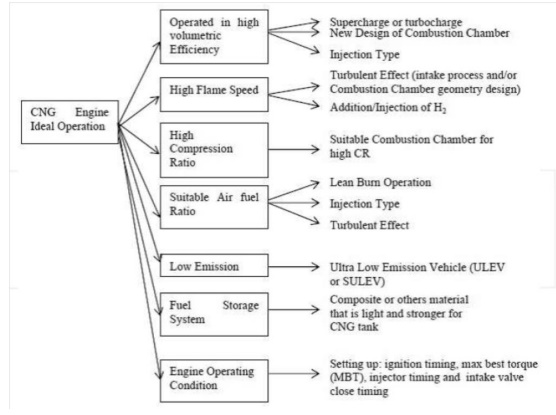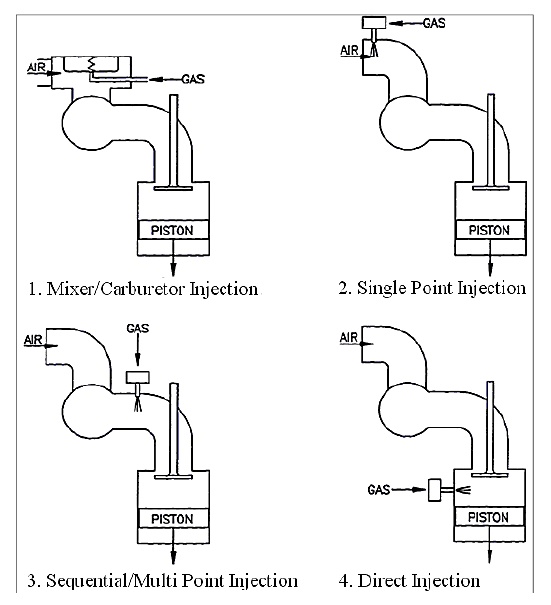Chapter: Mechanical : Advanced IC Engines : Alternate Fuels
Natural gas as Alternate fuel
Natural gas as Alternate fuel:
Natural
gas is produced from gas wells or tied in with crude oil production. Natural
gas (NG) is made up primarily of methane (CH4) but frequently contains trace
amounts of ethane, propane, nitrogen, helium, carbon dioxide, hydrogen
sulphide, and water vapour. Methane is the principal component of natural gas.
Normally more than 90% of natural gas is methane.
Natural
gas can be compressed, so it can stored and used as compressed natural gas
(CNG).
CNG
requires a much larger volume to store the same mass of natural gas and the use
of very high pressure on about 200 bar or 2,900 psi.
Advantages
of CNG:
1. Natural
gas is safer than gasoline in many respects.
2. The
ignition temperature for natural gas is higher than gasoline and diesel fuel.
3. Natural
gas is lighter than air and will dissipate upward rapidly if a rupture occurs.
4. Gasoline
and diesel will pool on the ground, increasing the danger of fire.
5. Compressed
natural gas is non-toxic and will not contaminate groundwater if spilled.
6. Compressed
natural gas is a largely available form of fossil energy and therefore
non-renewable.
7. It is a
cleaner fuel than either gasoline or diesel as far as emissions are concerned.
Fuel Characteristics of CNG:
The
octane rating of natural gas is about 130,meaning that engines could operate at
compression ratio of up to 16:1 without “knock” or detonation. Many of the
automotive makers already built transportation with a natural gas fuelling
system and consumer does not have to pay for the cost ofconversion kits and
required accessories. Mostimportantly, natural gas significantly reduces
CO2emissions by 20-25% compare to gasoline becausesimple chemical structures of
natural gas (primarilymethane – CH4) contain one Carbon compare to
diesel(C15H32) and gasoline (C8H18). Like methane and hydrogen is a lighter than
air type of gas and can beblended to reduce vehicle emission by an extra
50%.Natural gas composition varies considerably over tim eand from location to
location. Methane content istypically 70-90% with the reminder primarily
ethane, propane and carbon dioxide. At atmospheric pressure and temperature,
natural gas exists as a gas and has low density. Since the volumetric energy
density(joules/m3) is so low, natural gas is often stored in a compressed state
(CNG) at high pressure stored in pressure vessels.
CNG Ideal
operation:

Injection methods of Natural Gas engine
There are
four methods to inject the NG into the engine cylinder. First type is gas mixer
/ carburetor injection, second type is the single point injection, third type
is multi point injection and fourth type is direct injection. The illustration
of the four methods of NG injection is shown in Fig.

Related Topics